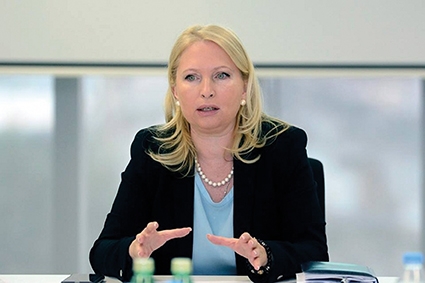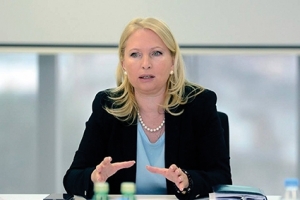Minister Turnava on the Gov't’s Anti-Crisis Plan following Russian Travel Ban
The Government of Georgia is developing an anti-crisis plan to minimize the expected economic impact of the Russian ban on air traffic to Georgia signed by the Russian President Vladimir Putin on June 21.
A statement was made by Minister of Economy and Sustainable Development of Georgia Natia Turnava, saying that the government is also working on a package of financial assistance for companies operating in the tourism sector.
As a result of the ban, set to kick off on July 8, around 155 thousand Russian people will not be able to use tickets they already purchased and 3.5 thousand people who booked tours to Georgia with travel agencies in Russia have had their trips cancelled. The Minister said she had met representatives of the tourism sector in Tbilisi and the Ajara region and well-recognized the challenges the country is facing.
“No matter how diversified our market is, the share of Russian tourists is high, at 25%. Therefore, we cannot say that this is not a problem. We expect the loss of around $750 million of income. But now we are working on ways to reduce the expected impact,” she said.
The Minister highlighted that Georgia does not mix politics when receiving tourists.
“We never do this, and we are trying hard to keep Russian tourists in our market. Georgia is a safe place, and everyone is invited. Our ratings, our way of life, mentality and the fact that we are open to everyone proves this,” she said, adding that the government will carry out a number of measures to somehow ease the difficulties expected following the Russian travel embargo.
“We are working on this and the exact details of the anti-crisis plan will be known by the end of the week,” she said.
The Minister noted the requests from the business sector regarding state support are clear and they do not want to lose this segment because it is both attractive and profitable.
“The Georgian tourism sector is a very large market and one of the most secure and attractive as well. Georgia does not choose tourists - tourists choose Georgia. This is quite a diversified market and no direction is dominant. Of course, we are well-aware of the concerns that the business sector has, and we are standing by their side to find solutions to overcome the potential negative impact caused by the crisis and will work together with them,” she added.
Turnava noted that on June 26, an agreement was signed with Wizz Air, a Hungarian low-cost airline successfully operating in Georgia for a number of years, which will launch direct flights from Kutaisi International Airport to 12 new European destinations: Frankfurt, Hamburg, Baden-Baden, Venice, Naples, Nice, Pisa, Stockholm, Nurnberg, Poznan, Heraklion, as well as Turku.
Seven flights from Kutaisi airport will start by the end of the year, and the rest will be added in the summer of 2020.
"This is a unique opportunity to welcome extra European tourists,” Turnava said. “It is especially interesting that we will have direct flights to Finland and Sweden as there is a growing interest in visiting Georgia from Scandinavia and, therefore, we will be able to host more tourists from these countries.”
When meeting the Minister, Georgian tourism representatives made several requests. In order to find alternative ways to bring tourists from Russia to Georgia, they asked for free buses to be available at the nearby airports of Baku, Yerevan and Trabzon. Moreover, the companies said border entry procedures from countries such as Iran, the Arab states and India need to be simplified.
The tourism sector also asked for free PR campaigns for tour operators, the involvement of the diplomatic corps and the revision of taxes. They also spoke about the importance of promoting internal tourism in Georgia.
By Thea Morrison
Image source: reginfo.ge












